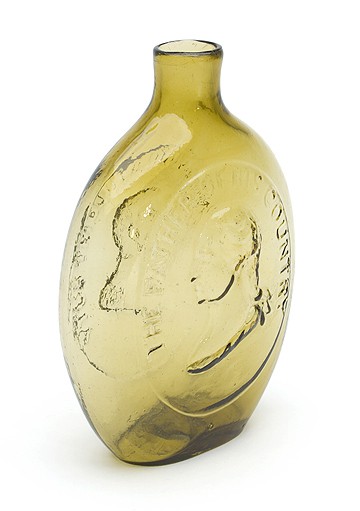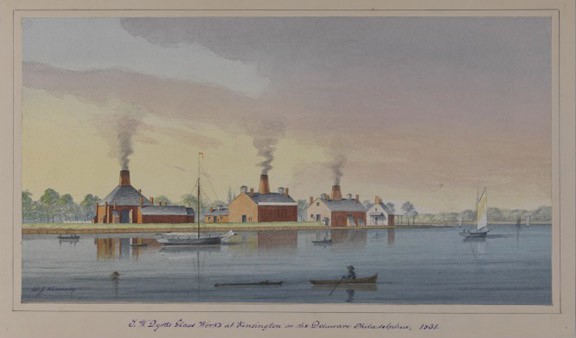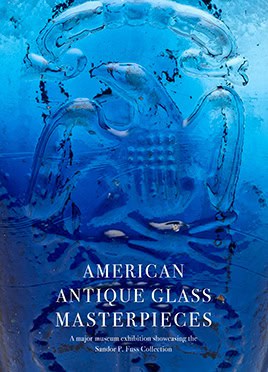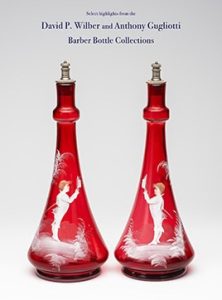“Our flask was recovered from a privy in the Historic District in downtown Savannah. The privy dated to about 1820 and was in use until around 1900. The bottle was recovered from a “cleanout” pit about 8 feet deep adjacent to the privy. The privy was cleaned out and rebuilt after 1865”
Ferdinand,
Continuing our discussion of bottles coming out of the woodwork…thought this might make for interesting viewing…
This bottle is in our upcoming May 16th auction and has just surfaced… literally! Recently dug in Savannah, Georgia – one of the digging team writes “Our flask was recovered from a privy in the Historic District in downtown Savannah. The privy dated to about 1820 and was in use until around 1900. The bottle was recovered from a “cleanout” pit about 8 feet deep adjacent to the privy. The privy was cleaned out and rebuilt after 1865”.
This Washington – Taylor Portrait pint flask is a brilliant light yellow – an extremely rare color, with this example being particularly light to the point of having it appear almost clear in some portions near the midsection of the bottle. Good story, but even better color and strong embossing to boot!
Here is a video of the bottle being unearthed that was also provided by the digging team: http://youtu.be/HUSHLZQCk24
Hope all is well!
Jason Heckler
Norman C. Heckler
[from 19th Century Bottle Digging] The Dyottville Glass Works was built in 1770. At that time it was known as the Philadelphia Glass works. In the early 1800s Thomas W. Dyott came over from England and purchased the glass house. He proceeded to build an establishment called “Dyottville” it remained the ‘Dyottville Glass Work’s” into the 1930’s.
Dyottville was more then just a glass factory,it was a home for more the 300 boys and young men. These workers were molded at a young age to blow glass at the factory, Dyott had a strict manor about him and strong morals.He made sure his workers followed his lead. He believed that European man and the alcohol tainted American man had no place in his glass blowing business. The rules and regulations these boys (workers) had to follow were nothing short of bizarre. Here are a few examples.
1. No swearing, improper or abusive language.
2. 5$ fine or optional with proprietor,dismissal for breaking the rule prohibiting liquor on the premises.
3. 5$ fine for disobeying the orders of a superior.
4. Personal cleanliness and “necessary ablution” before meals,school and church.
5. Use of all fines to purchases books for the Dyottville Apprentices Library.
6. Strict prohibition of every species of gambling.
7. Immediate notification of the superintendent in case of a journeyman’s illness,so another could take his station in the factory,and in case of an apprentice,report to the principal teacher.
T.W Dyott was running a small community/glass factory. There was a school, church,hospital, library and a farm. He was a very interesting man indeed.








